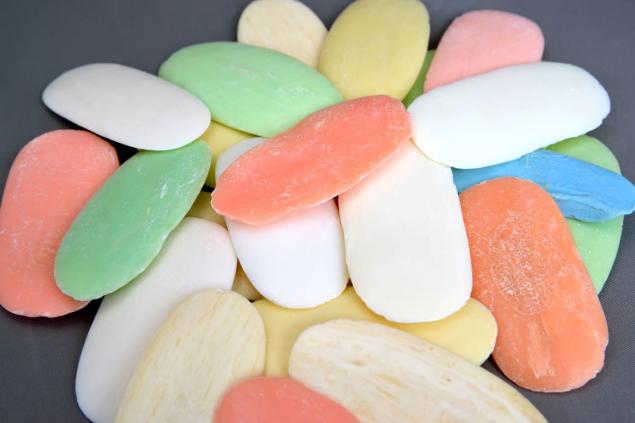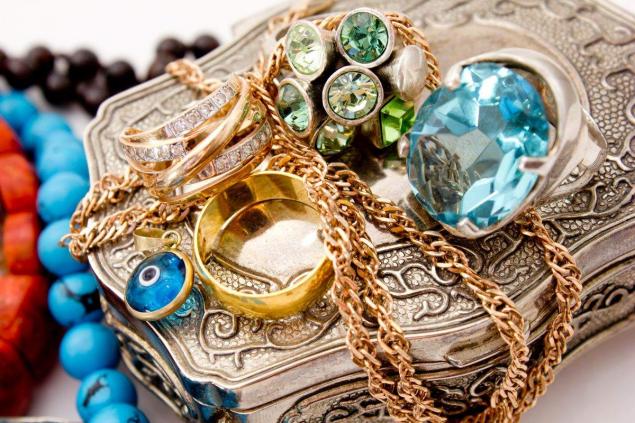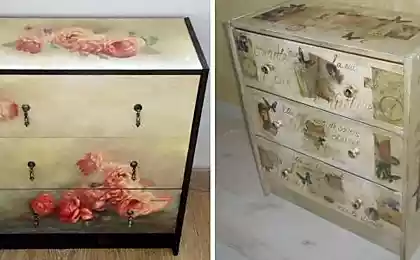175
The former cook from the Soviet dining room rubs the bulb with oil, you will be surprised why
The fashion for saving everything and everywhere has come. The era of consumption is over. A practical person is now in honor and encouraged in every possible way by society. Therefore, in Europe, there is a boom in reusable packaging, since garbage everywhere is immeasurable.
42,40089
Sometimes it seems that the family spends more time on garbage than their own children. Bring home a bunch of bags, tin cans, rustling packages and start a daily ritual. Get, unpack, sort into the right container: glass, plastic, paper, food waste. After eating, the ritual is repeated with empty packaging.
In order to save money in the civilized European world, they repair everything they can. And what is not subject to repair – to recycling! It is considered very cool if the hostess herself grows greens on the windowsill, because it is such budget savings and environmentally friendly.
To help you become practical and be in the spirit of the times, we are in the editorial office. "Site" We remembered and collected some invaluable advice from the distant Soviet past on how to save money in the USSR. You may take some of them into consideration.
If you are from a breed of people who still like piece soap, you probably have a slide of soap residues growing somewhere in the bins. They can, for example, transfer the contours of the pattern to the fabric. After the first washing of the product, there will be no trace of the marks. And these soaps can be collected a lot and made of them. liquid-soap, adding water and essential oil. I think it's cheap and angry.

For example, there was a problem to clean gold, silver or gilded cutlery. Special funds are very expensive, and it is not reasonable to buy them once or twice. Unless you're cleaning silver on an industrial scale, a lemon will do just fine. Rub the jewelry with a slice of lemon, leave it for 5-7 minutes. Then you need to thoroughly wash with water and dry. The gold will shine like new, after the usual soap solution or ammonia. They also say that ordinary table salt cleans gold well. Vinegar, soda, hydrogen peroxide are the most popular and effective means in household chores.

I hope you, as a practical hostess, don't just pour potato broth into the sink. Water from boiled potatoes in Soviet times had many uses. You can make mashed potatoes with it if there is no milk. It was added to cake dough instead of regular water. Still more calories. And that's not all. Hold your hands in a potato broth and they will become soft and silky, like after spa treatments.

Vegetable oil can be stored for a long time. But sometimes it gets cloudy. Young and inexperienced housewives throw away all the oil from sin. And for nothing. It's scientifically called mud. phospholipids. Yes, the same lycetin that is sold in the pharmacy as a dietary supplement. A pinch of salt is poured on the surface of the oil and left in this form for a couple of days. After this time, all the sediment is collected at the bottom. Now you can pour the transparent oil into another container.

After cooking, sometimes unused vegetables remain. If half of the cabbage is simply loaded on the lower shelf of the refrigerator, after a while the cut will turn black and begin to rot. Soviet women, to prevent this, wrapped cabbage in the newspaper. The paper absorbed excess moisture, and the cabbage was perfectly preserved until the next borscht. The only question is, where do I get a newspaper? And half of the bulb can be rubbed with sunflower oil, then it will lie quietly in the cold for up to a week. But we recommend that you still choose smaller bulbs to use completely. Or you can cut it in the husk and then clean it.
The nail of the program - women's tights Soviet capron tights - a source of inspiration in the Soviet era! Every woman, regardless of age and occupation, could find practical applications. Tights were cut into long thin tapes and knitted with spokes and hooks mats, washcloths, colorful rags for the kitchen.
What better way to preserve the extravagant hairstyle the night before the solemn event than a tights net with the rubber band cut off?
The ladies didn't want any of them either. They tied tomatoes and cucumbers together, rubbed currant jelly through them. And for the processing of plants, they poured ash inside and walked around the site, tapping a stick on the dusty leg. Convenient, practical and even stylish. And of course, as a classic of the genre, onion and garlic garlands in the kitchen corner. Vegetables in tights were preserved perfectly.
77332
Here's another million-dollar tip. Building mixtures were successfully filtered through women's tights. Then they became homogeneous, without impurities and stones. And also tights were just worn on their feet for insulation and beauty.

Some of us get high, squeezing toothpaste out of a seemingly hopeless tube, or month after month gently stacking paper packages of eggs on the top shelf. Others consider it an element of poverty-stricken life and allow themselves not to look for goods at a discount on the supermarket shelf. What category do you belong to? Tell us about your savings in the comments!
42,40089
Sometimes it seems that the family spends more time on garbage than their own children. Bring home a bunch of bags, tin cans, rustling packages and start a daily ritual. Get, unpack, sort into the right container: glass, plastic, paper, food waste. After eating, the ritual is repeated with empty packaging.
In order to save money in the civilized European world, they repair everything they can. And what is not subject to repair – to recycling! It is considered very cool if the hostess herself grows greens on the windowsill, because it is such budget savings and environmentally friendly.
To help you become practical and be in the spirit of the times, we are in the editorial office. "Site" We remembered and collected some invaluable advice from the distant Soviet past on how to save money in the USSR. You may take some of them into consideration.
If you are from a breed of people who still like piece soap, you probably have a slide of soap residues growing somewhere in the bins. They can, for example, transfer the contours of the pattern to the fabric. After the first washing of the product, there will be no trace of the marks. And these soaps can be collected a lot and made of them. liquid-soap, adding water and essential oil. I think it's cheap and angry.

For example, there was a problem to clean gold, silver or gilded cutlery. Special funds are very expensive, and it is not reasonable to buy them once or twice. Unless you're cleaning silver on an industrial scale, a lemon will do just fine. Rub the jewelry with a slice of lemon, leave it for 5-7 minutes. Then you need to thoroughly wash with water and dry. The gold will shine like new, after the usual soap solution or ammonia. They also say that ordinary table salt cleans gold well. Vinegar, soda, hydrogen peroxide are the most popular and effective means in household chores.

I hope you, as a practical hostess, don't just pour potato broth into the sink. Water from boiled potatoes in Soviet times had many uses. You can make mashed potatoes with it if there is no milk. It was added to cake dough instead of regular water. Still more calories. And that's not all. Hold your hands in a potato broth and they will become soft and silky, like after spa treatments.

Vegetable oil can be stored for a long time. But sometimes it gets cloudy. Young and inexperienced housewives throw away all the oil from sin. And for nothing. It's scientifically called mud. phospholipids. Yes, the same lycetin that is sold in the pharmacy as a dietary supplement. A pinch of salt is poured on the surface of the oil and left in this form for a couple of days. After this time, all the sediment is collected at the bottom. Now you can pour the transparent oil into another container.

After cooking, sometimes unused vegetables remain. If half of the cabbage is simply loaded on the lower shelf of the refrigerator, after a while the cut will turn black and begin to rot. Soviet women, to prevent this, wrapped cabbage in the newspaper. The paper absorbed excess moisture, and the cabbage was perfectly preserved until the next borscht. The only question is, where do I get a newspaper? And half of the bulb can be rubbed with sunflower oil, then it will lie quietly in the cold for up to a week. But we recommend that you still choose smaller bulbs to use completely. Or you can cut it in the husk and then clean it.
The nail of the program - women's tights Soviet capron tights - a source of inspiration in the Soviet era! Every woman, regardless of age and occupation, could find practical applications. Tights were cut into long thin tapes and knitted with spokes and hooks mats, washcloths, colorful rags for the kitchen.
What better way to preserve the extravagant hairstyle the night before the solemn event than a tights net with the rubber band cut off?
The ladies didn't want any of them either. They tied tomatoes and cucumbers together, rubbed currant jelly through them. And for the processing of plants, they poured ash inside and walked around the site, tapping a stick on the dusty leg. Convenient, practical and even stylish. And of course, as a classic of the genre, onion and garlic garlands in the kitchen corner. Vegetables in tights were preserved perfectly.
77332
Here's another million-dollar tip. Building mixtures were successfully filtered through women's tights. Then they became homogeneous, without impurities and stones. And also tights were just worn on their feet for insulation and beauty.

Some of us get high, squeezing toothpaste out of a seemingly hopeless tube, or month after month gently stacking paper packages of eggs on the top shelf. Others consider it an element of poverty-stricken life and allow themselves not to look for goods at a discount on the supermarket shelf. What category do you belong to? Tell us about your savings in the comments!
Learning that he did not have long to live, the rich man decided to give things to a homeless shelter, he was stunned by what he saw there.
Showing what I do with tomato paste, even after 3 months of storage does not mold























